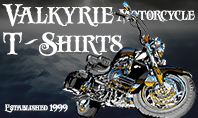Renaissance were an English progressive rock band, most notable for their 1978 UK top 10 hit "Northern Lights".
Former Yardbirds members Keith Relf, and Jim McCarty organised a new group devoted to experimentation between rock, Folk, and classical forms. This quintet — Relf on guitar & vocals, McCarty on drums, plus bassist Louis Cennamo, pianist John Hawken, and Relf's sister Jane Relf as an additional vocalist — released a pair of albums on Elektra (US) and Island (UK-ILPS 9112), the first one, titled simply "Renaissance", being produced by fellow ex-Yardbird Paul Samwell-Smith.
As touring began to grind on them, the band gradually dissolved one by one. As each member left, new or guest members were added. A barely finished second album, Illusion, was released in Germany in 1971, although not released in the UK until 1976. (Island, HELP 27)] This album marked the beginning of Renaissance's long-standing collaboration with Cornish poet Betty Thatcher-Newsinger as lyricist when she co-wrote two songs with Relf and McCarty; it also featured the first composition by Michael Dunford, who would soon become the band's principal composer.
Dunford joined the band on guitar, before leaving to work as full-time composer. McCarty, although no longer performing, continued to compose for the band while Dunford, inheriting the helm of the band, started auditions for a new lineup. Vocalist Binky Cullom came and went. Reflecting his academic training, Dunford started rebuilding the group with more classically trained personnel. With some vocal training and local gigs under her belt, Annie Haslam saw an advertisement in the music weekly "Melody Maker" for a singer in Dunford's new group. She was hired, and the second incarnation of Renaissance was begun. New material was created by Dunford sending Thatcher sheet music and demo tapes, which she would write poetry to fit.
A line-up consisting of Haslam (vocals), John Tout (piano), Jon Camp (bass pedals/vocals),Terence Sullivan (drums) and Mick Parsons (electric guitar) was set to record a new album when Parsons died suddenly, and Rob Hendry (electric guitar) was drafted in to replace him. This line-up released Prologue in 1972 on EMI-Sovereign Records (UK), with four tracks composed by Dunford and two by McCarty; two were instrumentals and four featured lyrics by Thatcher. Francis Monkman, of the group Curved Air, guested on synthesiser on the final track "Rajah Khan".
Hendry left the group after the album was recorded and Michael Dunford returned as lead (acoustic) guitarist, completing what most fans regard as the classic five-piece line-up, which would remain together through six studio albums. The next album, Ashes are Burning, was released in 1973. Dunford, McCarty and Thatcher continued as composers and lyricist, and Dunford debuted with acoustic guitar contributions. Andy Powell, of the group Wishbone Ash, was brought in for a blistering electric guitar solo on the final track "Ashes are Burning," which became the band's anthem piece. (John Tout returned the favour by playing organ on Wishbone's classic album "Argus"). The album became the band's first to chart in the US where it reached #171 on the Billboard 200.
The band left major label EMI, and was recruited by Miles Copeland's new prog rock boutique label BTM Records (British Talent Management). The label's first release was Turn of the Cards in 1974. With a larger budget, the album went from folk-flavoured to a more dark, lush, orchestral rock sound. One of the album's songs, "Things I Don't Understand" which clocked in at 9:30, was Jim McCarty's last co-writing credit with the group. A lengthy tribute to Aleksandr Solzhenitsyn, called "Mother Russia", closed out the album, with lyrics inspired by his story "One Day in the Life of Ivan Denisovich". The LP was first issued in the United States on Sire Records in August 1974, where it reached #94, some months before an official UK release. Although the band's fan base was relatively small, its following was heavily concentrated in the large cities of the northeast US. The album was eventually released in the UK in March 1975.
It was soon followed by their Scheherezade and Other Stories album, released on both sides of the Atlantic in September 1975. The album, whose second side was taken up with the epic tone-poem "Song of Scheherazade" based on stories from 1001 Nights, peaked at #48 in the United States.
A double live album, Live at Carnegie Hall, followed in 1976. Despite criticisms that much of the album was little more than a note for note reproduction of highlights from their previous four studio albums the album reached #55 in the US.
Its follow-up, Novella, also saw a modest chart success in the US, peaking at #46 in 1977, although its UK release was delayed by yet another label change.
In the 1970s, Renaissance defined their work with folk rock and classical fusions. Their songs include quotations from and allusions to such composers as Alain, Bach, Chopin, Debussy, Giazotto, Jarre, Rachmaninoff, Rimsky-Korsakov, Prokofiev. Renaissance records, especially Ashes Are Burning, were frequently played on American progressive rock radio stations such as WNEW-FM, WHFS-FM, WMMR-FM, KSHE 95 and WVBR.
Although commercial success was limited during this period, Renaissance scored a hit single in Britain with Northern Lights, which reached #10 there during the summer of 1978. The single was taken from the album A Song for All Seasons (a #58 album in the US).
With the unionization of professional orchestral musicians that followed, it was no longer financially feasible for the band to continue with its traditional orchestral sound. Renaissance floundered following 1979's Azure d'Or, as many fans couldn't relate to a largely synthesizer-oriented sound. As a result the band's fan base began to lose interest and the album only reached #125. Michael Dunford and Jon Camp assumed most of the band's songwriting, and after Azure d'Or, John Tout and Terry Sullivan left the group. Subsequent albums Camera Camera (1981) and Time Line (1983) brought Renaissance more into the contemporary synth pop genre, but neither garnered enough commercial interest to make a viable future for the band, which then ended its second incarnation. Camera Camera was the band's final album to chart in the US where it reached #196 in late 1981.
Renaissance albums were not available individually on CD for some time. A pair of compilations were issued in 1988. In the 1990s most of their catalog appeared on CD from reissue record labels such as Repertoire Records (Germany). In 2006 Repertoire did much higher quality remasters of Ashes are Burning, Turn of the Cards and Scheherezade with markedly improved sound.
In the mid 1990s both Haslam and Dunford formed their own bands using the name Renaissance and released albums with different line-ups.
Renaissance partially reformed in 1998, with Haslam, Dunford, Sullivan, Tout and several new musicians, most notably Mickey Simmonds, to record the CD Tuscany. They played one concert at the Astoria in London before embarking on a short Japanese tour in 2001 which resulted in a live CD . (Tout, although in the audience at the Astoria, did not perform on this tour). Annie Haslam, who had become the band's spokesperson, said that several factors made further touring and recording impractical. The band's short third incarnation was soon over.
Terry Sullivan has since recorded an album called South of Winter with a studio group he named Renaissant. It is evocative of Renaissance's music, with lyrics by Betty Thatcher Newsinger and keyboard contributions by John Tout.
On 20 September 2008, John Tout made his first public appearance in the US in over 25 years, with Annie Haslam and the Jann Klose band, at the Sellersville Theatre 1984 in Sellersville, Pennsylvania.
Carpet of the Sun
Running Hard
Can You Understand
Northern Lights
Opening Out
Forever Changing
Ashes Are Burning
Winter Tree
Renaissance - Kings and Queens (External Embedding Disabled)
Kings and Queens
Song Of Scheherazade/Ocean Gypsy
A Song For All Seasons
Flight
MIDAS MAN





